Adam McKay‘s cinematic journey is, at least to this day, one of the most peculiar that can be traced in the United States. So much so that his filmography can be separated into two parts that seem to belong to two different directors. One would be made up of his last three films shot since 2015, i.e. The Big Short, Vice, and this Don’t Look Up. The other would include all his previous films, comedies such as Anchorman: The Legend of Ron Burgundy, Step Brothers or Anchorman 2: The Legend Continues.
The differences between the two blocks are notable. McKay seems to have left behind (it’s too soon to know if definitively) those modern comedies that helped build the careers of people like Will Ferrell, Steve Carell or John C. Reilly, and now seems to have taken to a type of cinema that aims to reflect the zeitgeist of a certain historical moment. What it has not abandoned in comparison to those early comedies, however, is irony and mordacity. Given the considerable leap in terms of ambition that this new stage in McKay’s filmography represents, the first block could well be understood as a rehearsal for the second.

Likewise, The Big Short and Vice could also be accepted as drafts of Don’t Look Up. Both are films that focus on very specific aspects, the beginnings of the 2008 economic crisis and the career of Dick Cheney respectively, to offer a portrait of the absurdity of the times we live in. Don’t Look Up pursues the same ultimate goal, but opens the focus almost uncontainably to encompass many different aspects of life around us. The picture, then, is far more complex… and complete.
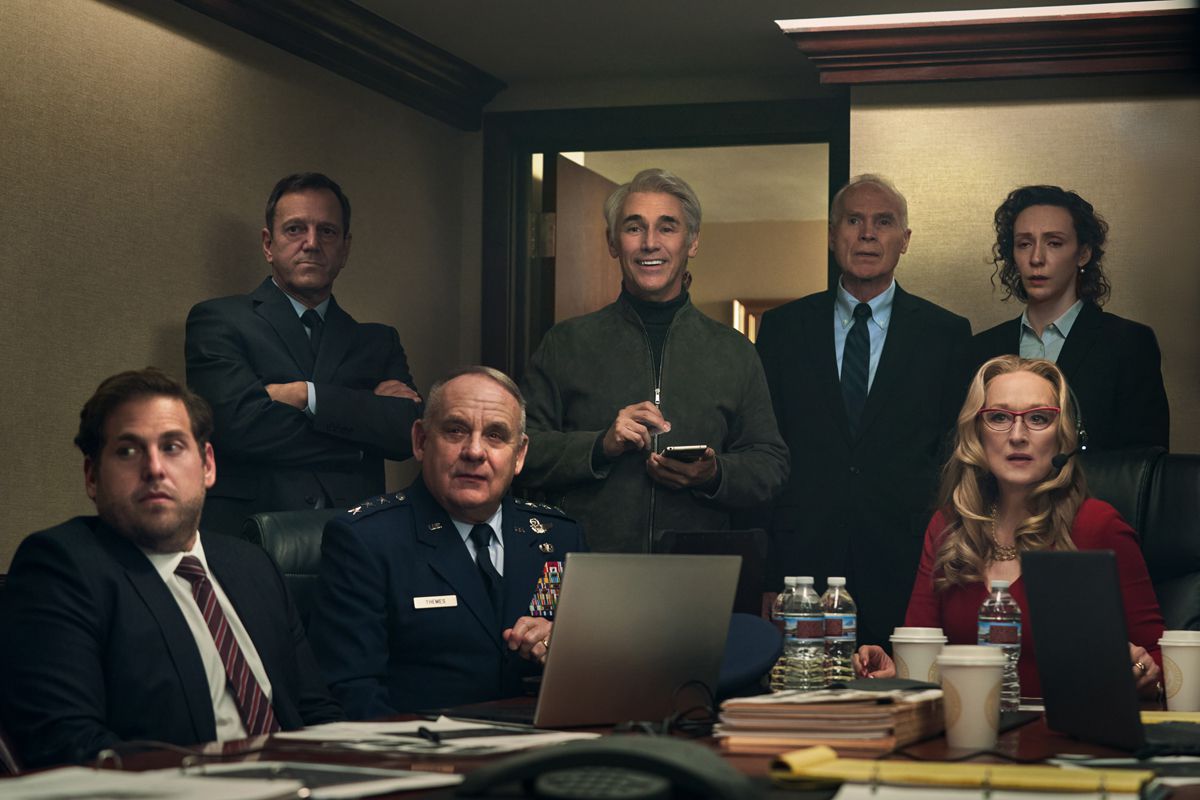
McKay fires so many shots and at so many different places that it is impossible to summarise them all. This forces him, of course, to make a choral film in order to be able to deploy so many different points of criticism. As usually happens in this type of omnibus film, a bit à la Soderbergh, McKay relies on a brilliant casting that, in this case, serves to compartmentalise each of his criticisms.
There are, among other aspects that the film focuses on, the empty vanity of modern cultural references (the character played with healthy self-irony by Ariana Grande), the stupid incompetence of the current political class (wonderful, as always, Meryl Streep, and effective Jonah Hill), the prevailing frivolity of the mass media (fabulous Cate Blanchett), the real power that big tech companies can wield (Mark Rylance, in an Oscar-nominated performance), the rampant idiocy of social media, or, of course, in the post-Trump era, the dangerous effects of certain discourses on the masses.
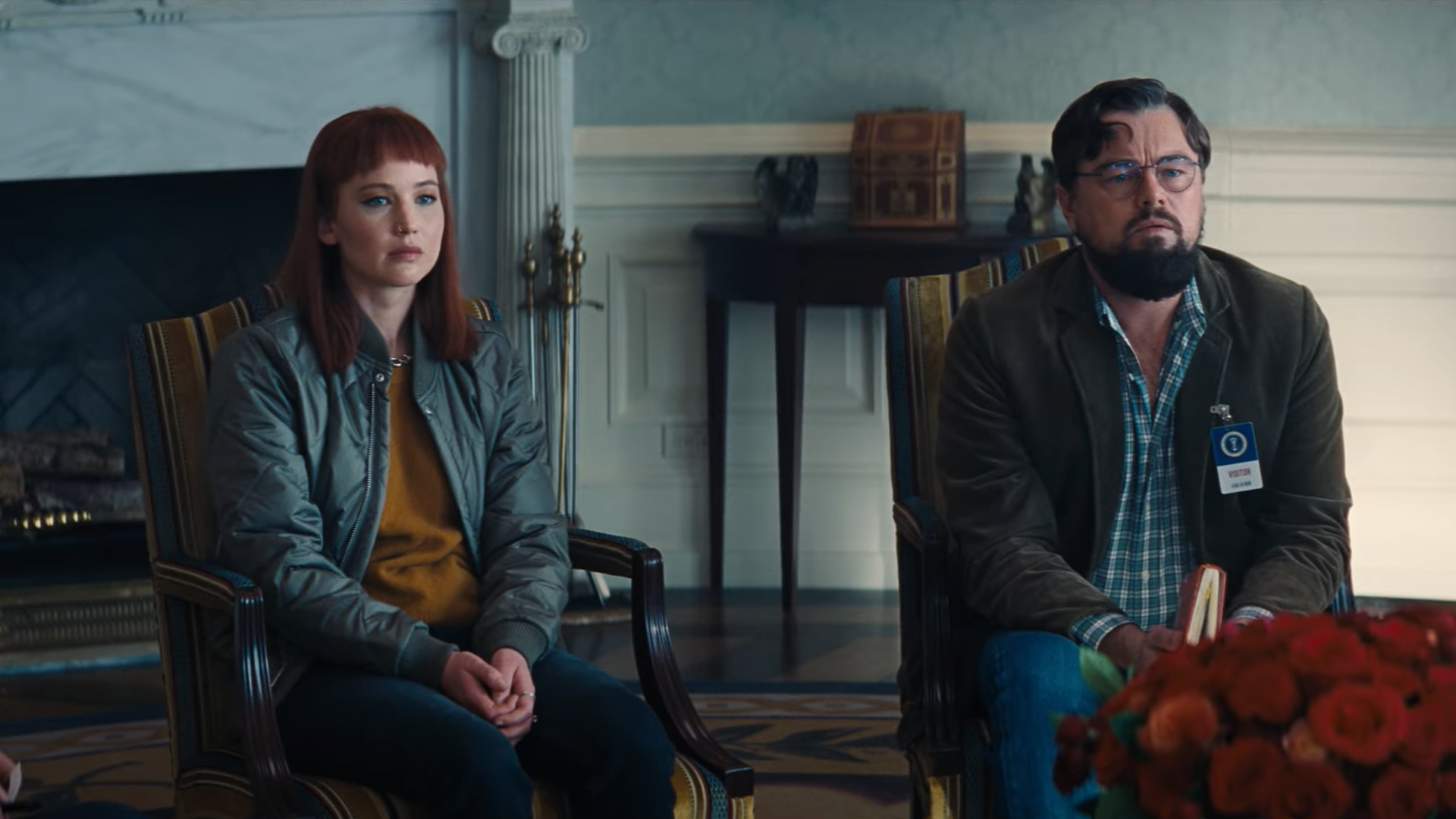
However, where Don’t Look Up is surgically precise to painful extremes is undoubtedly in the portrayal of the despair and bewilderment of the average citizen represented by the two main characters played (wonderfully) by Leonardo DiCaprio and Jennifer Lawrence. Who, curiously, are the two least grotesque (or the only two) of all the characters who swarm this singular canvas.
It is the story of two scientists who discover a comet that will inevitably crash into the Earth in six months’ time. Their attempt to warn the world comes up against the bleak reality: no one cares about the fate of the world these days, all that matters is the me and the now. The anchors of the TV show on which they present their findings don’t even take them seriously; policymakers care more about the upcoming elections than the imminent destruction of the planet.
We are animals on the verge of extinction because we are incapable of thinking coherently beyond commercial, industrial and economic interests.
On the other hand, social media ignores the alert and prefers to get lost in debates about how sexy the scientist played by DiCaprio is in, incidentally, one of the film’s endless caustic jokes: the costume and make-up department of Don’t Look Up has ostensibly gone to great lengths to make the actor appear devoid of any sex appeal, and yet that’s all people care about.
It is in these two bewildered characters that Don’t Look Up best synthesises its terrible discourse: the downfall of the human being, sunk in layers and layers of algorithms, incapable of producing a single sensible leader capable of guiding our species towards a dignified future. We are animals on the verge of extinction because we are incapable of thinking coherently beyond commercial, industrial and economic interests.
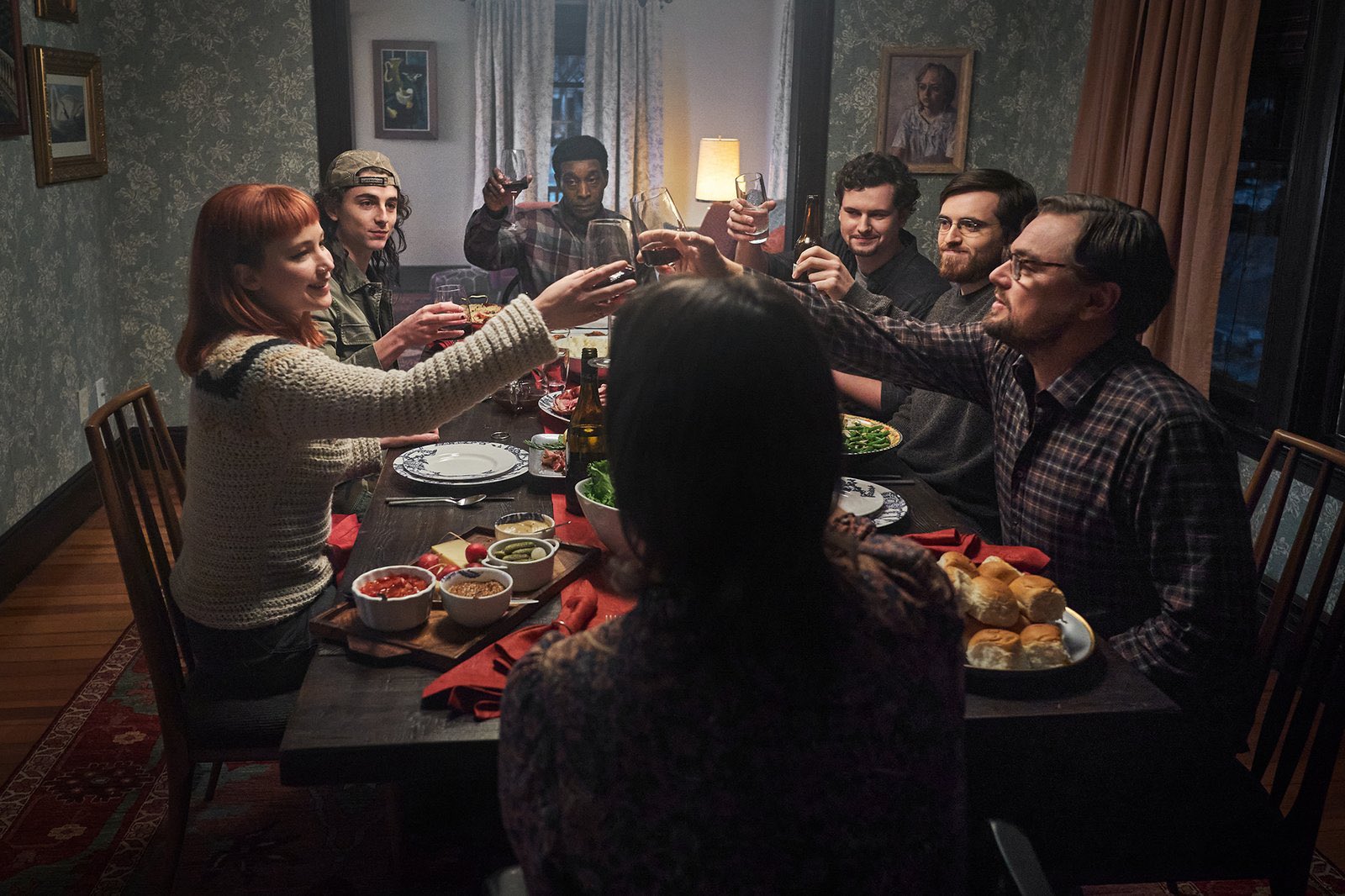
In this regard, the plot cycle that opens and closes the film is definitive. At the beginning, when DiCaprio and Lawrence’s characters try unsuccessfully to broadcast their discovery to the world, no one pays any attention to them amidst the perpetual meme that our society has become. Despair wipes them out, anxiolytics fly, how on earth can people make jokes about the end of the world? But in the end, when the comet is visible and the end is evident, panic breaks out in the streets and it is then that DiCaprio and Lawrence, resigned, become impervious to the tragedy.
It’s not an We warned you, but rather a final act of surrender and tempered resignation in the face of human stupidity. Whether or not to save the planet was an irrelevant enterprise: the rampant idiocy of today’s society made it unfeasible that, as an Earth-dwelling species of more developed intelligence (?…), we could agree to avert the tragedy.
Netflix can be criticised for a lot of things in terms of its production of originals. I won’t go into this, nor how wrong I think it is to make astronomical investments like those in Red Notice, which ends up looking like a film shot on video. But we must recognise that the platform, in its policy of paying for everything that crosses its path, has given the green light to projects by people who, like Aaron Sorkin (the unforgettable The Trial of the Chicago 7) or Adam McKay, manage to transcend the usual narrative limits of the platform’s films with their talent.
Moreover, the fact that Netflix is releasing Don’t Look Up in the middle of the Christmas season can only be described as a poisoned gift. In effect, the streaming platform slaps us in the face at the kindest time of the year with a film in which it’s scary to watch because what it reflects is an image that admits little argument: human beings have become complete assholes.

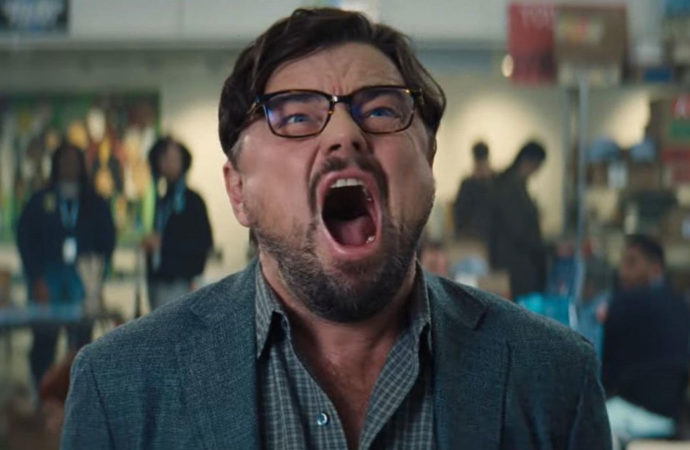

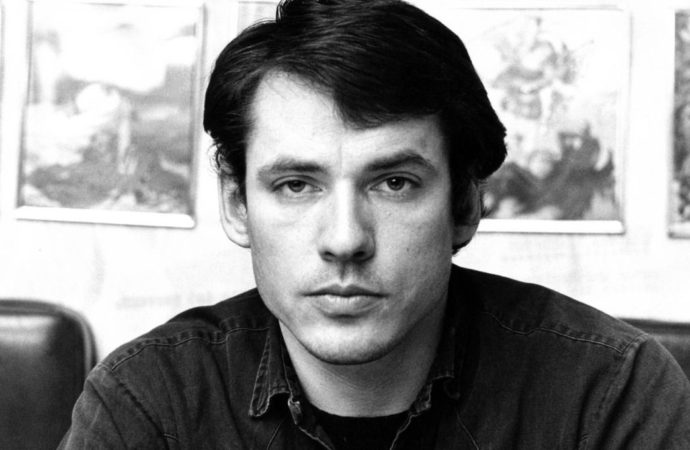




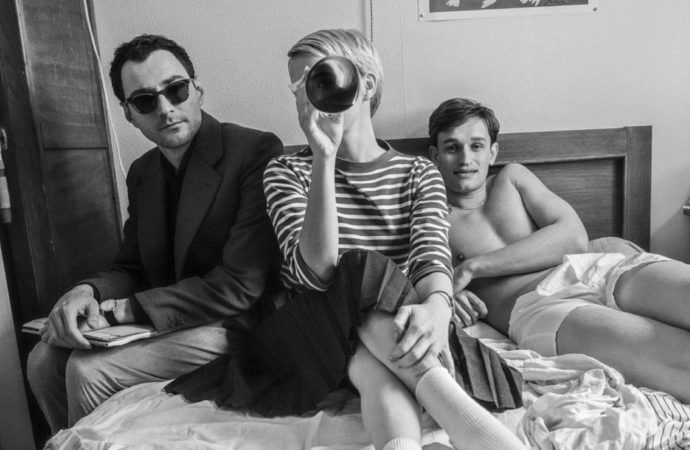
No one has posted any comments yet. Be the first person!